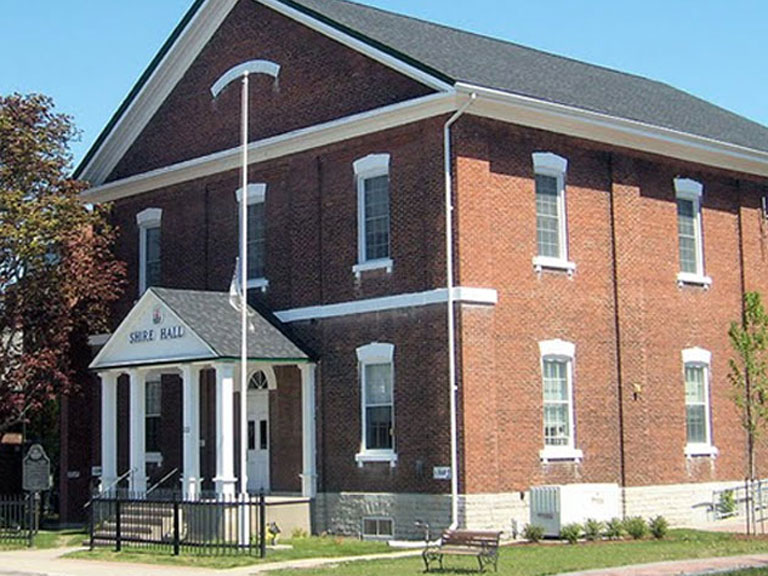County News
Breathing room

Municipal Accommodation Tax won’t come into effect on June 1
Last Wednesday evening, council held its first meeting—albeit digitally— since March, where implementation of the County’s Municipal Accommodations Tax that was set to come into effect on June 1 was delayed until further notice.
At a special Committee of the Whole meeting in early March, County council unanimously voted in favour of implementing a new MAT. The recommendations from the report identified that the MAT was to be applicable to all short-term accommodations in Prince Edward County at a rate of four per cent and take effect as of June 1, 2020. A bylaw to enact the new MAT was intended to be brought forward to council on March 24. However due to the rapidly evolving COVID-19 pandemic and the Province’s stay home orders, the meeting was cancelled and the MAT bylaw did not come forward.
A new staff report, prepared by Destination Development and Marketing Coordinator Ashley Stewart, suggested that the bylaw be enacted, but the implementation of the program be defered to a future date. “As a result of government interventions and ever-increasing social and physical distancing requirements, many local accommodation operators have suffered greatly with bookings taking a steep and immediate decline.” states Stewart. “The date at which businesses can once again open their doors is unclear and uncertain. As a result, a June 1, 2020 implementation date for a MAT is no longer realistic.”
The effects of the COVID-19 pandemic have had a large impact on the County’s local economy, especially the tourism and accommodations industry. Between April 1 and August 31, 2020 the Prince Edward County Accommodations Association (StayPEC) estimates a loss of gross sales amounting to $7,464,895 and 266 affected employees. These estimates only represent the losses experienced by StayPEC’s members. The loss across the accommodations sector as a whole in the County will be much greater.
Mayor Steve Ferguson felt that implementing the bylaw in general at this time was a bad idea. “I don’t agree with the bylaw now when so many of these businesses and the travelling public they will be hosting have been so significantly affected by the pandemic. We have had to take extraordinary measures including asking for accommodators support to cancel reservations,” said Ferguson. “What I would like to see is a deferral of this matter until the end of 2020 with implementation sometime in 2021. This is a fair thing to do in the current circumstance, but it does serve notice to all these accommodations that MAT tax is coming so they can prepare themselves accordingly.”
Todd Davis, Acting Director of Community Development and Strategic Initiatives, agreed with the mayor, but explained that the bylaw should still be passed now, with the implementation timeline put off to a future date. This would allow staff to start on the necessary work to roll out the program. “The risk of deferring the entire process would mean that we wouldn’t be able to go out and negotiate with any of the platforms that would be collecting the tax in the future. They require a bylaw in place to do that,” said Davis. “We are not asking to implement or enact the bylaw, we are asking to pass the bylaw and hold the enactment date to sometime in the future. That would require a report to council and then 90 days notice to the operators.”
A minimum of 90 days public notice will be given. Using the County’s new Have Your Say public engagement platform, staff is recommending that industry and public consultation to determine how MAT funds are spent continue to occur on a slightly altered timeline.
Industry will also be consulted on determining an appropriate MAT enactment date that supports the accommodations sector economic recovery while also collecting MAT from visitors. CAO Marcia Wallace told council that they had learned a lot from the pushback earlier in March, and they would be changing their strategy going forward. Many accommodation providers felt that the MAT was sprung on them. Many were not aware it was even being discussed. “We certainly learned something when we brought this to the special meeting. We will be communicating by letter to every single STA operator in hopes of doing a better job of explaining to them what a bylaw enactment without implementation means, what we are trying to consult on in the interim period and a lot more direct one-on-one communication between the municipality and the operators,” said Wallace.
Council supported staff’s recommendation that a MAT bylaw be approved, but enactment delayed until a future date, yet to be announced.

Comments (0)